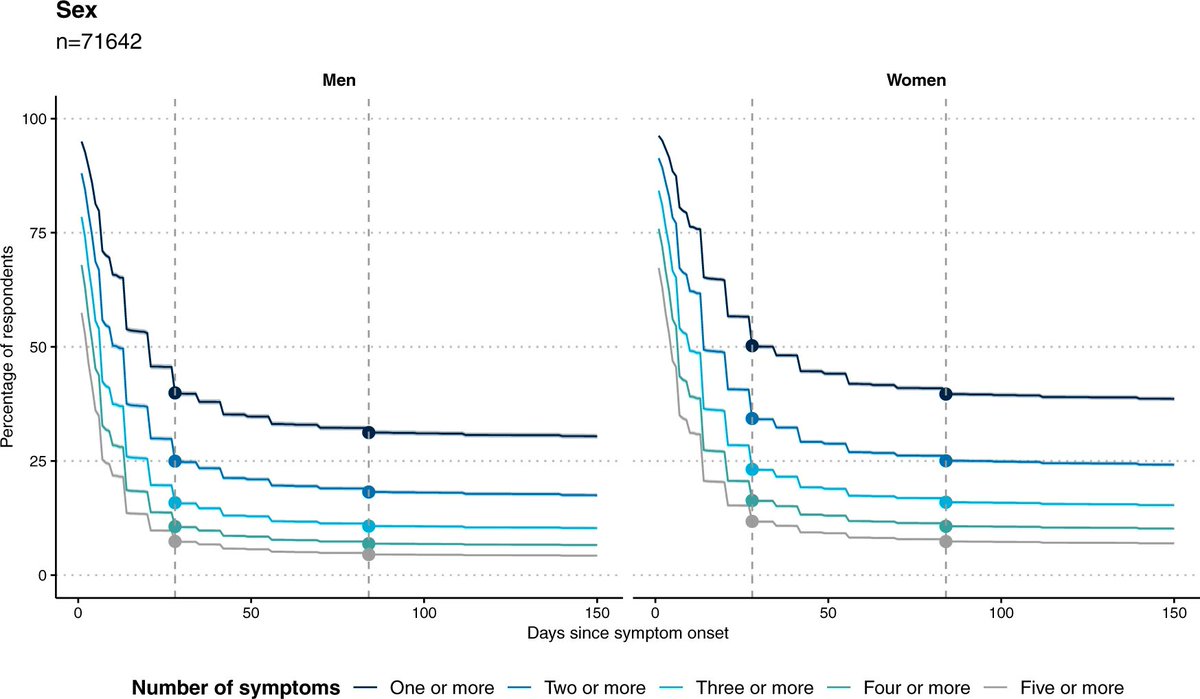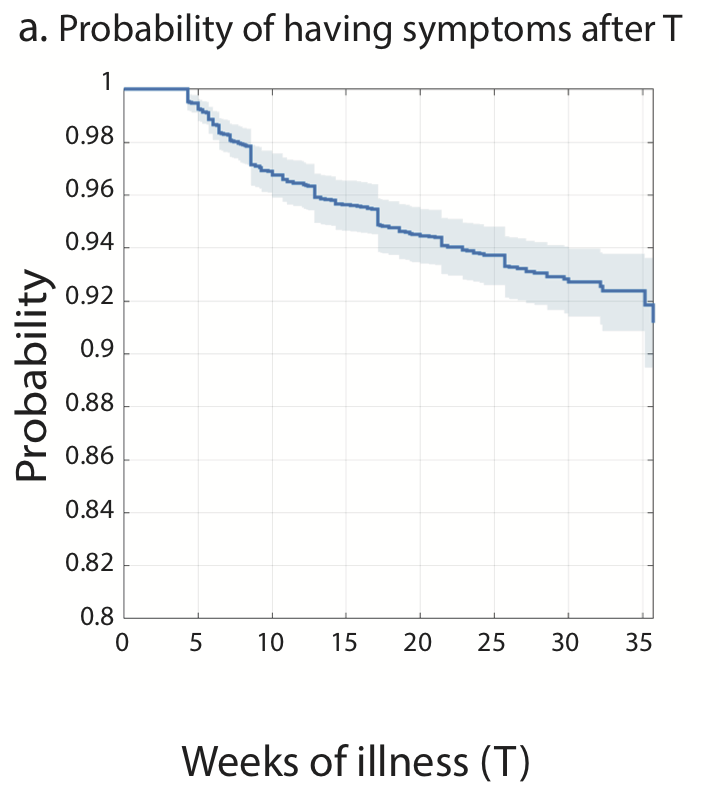We’ve updated our recent #LongCovid preprint with some new analyses, figures and data. I'm going to list the main updates here.
#PASC
1/
@ahandvanish, @GinaAssaf, @LisaAMcCorkell, @herlifeinpixels, @YochaiReemMD, @Robotistry
medrxiv.org/content/10.110…
#PASC
1/
@ahandvanish, @GinaAssaf, @LisaAMcCorkell, @herlifeinpixels, @YochaiReemMD, @Robotistry
medrxiv.org/content/10.110…
https://twitter.com/AthenaAkrami/status/1343166371329413120
Comparison of illness duration in cisgender female vs. cisgender male respondents. No difference. No evidence, in our cohort, indicating that any particular gender would experience Long COVID symptoms for shorter or longer period (unfortunately, not enough data for non-binary)
2/
2/

Comparison of symptom profile for cis Female vs cis Male:
Elevated temperature/fever shows the biggest difference (higher in F). Palpitations, tachycardia, chest pain, joint/muscle ache, memory & language/issues also higher in F. Otherwise, all other symptoms manifest equally.
3/
Elevated temperature/fever shows the biggest difference (higher in F). Palpitations, tachycardia, chest pain, joint/muscle ache, memory & language/issues also higher in F. Otherwise, all other symptoms manifest equally.
3/

2. Symptom severity and count in recovered vs unrecovered participants (both groups sick for >28 days). After the acute phase (first 4 weeks), recovered participants had significantly less sever symptoms and lower number of symptoms over time.
4/
4/

suggesting: 1. higher number of symptoms correlates w longer recovery, 2. LC symptoms can't be explained by “pandemic anxiety”, since that would apply similarly to recovered & unrecovered groups -response to some LC minimisers, claiming LC consists of generic pandemic symptoms
5/
5/

We further looked at similarities between participants w positive vs negative or absent test results. No significant difference between illness duration in Positive vs Negative or Positive vs All (includes those where testing was absent, as well as negatively tested).
6/
6/

And looking at the symptoms profile over time, once again we confirmed that the only difference is the “change in sense of smell/taste”, especially at the beginning of the illness, as they’re becoming equally common later in the disease course.
this figure shows Pos Vs Non-Pos
7/
this figure shows Pos Vs Non-Pos
7/

The same applies to Positive vs Negative (right) or Positive vs Un-tested (left).
We can take out the negative/absent group from our cohort & none of the conclusions changes for the remaining 1,020 positive cases. But we believe there's scientific value in keeping all groups.
8/

We can take out the negative/absent group from our cohort & none of the conclusions changes for the remaining 1,020 positive cases. But we believe there's scientific value in keeping all groups.
8/


We have also included all the raw data tables (all the symptom prevalence and time course estimates).
9/
9/
• • •
Missing some Tweet in this thread? You can try to
force a refresh







